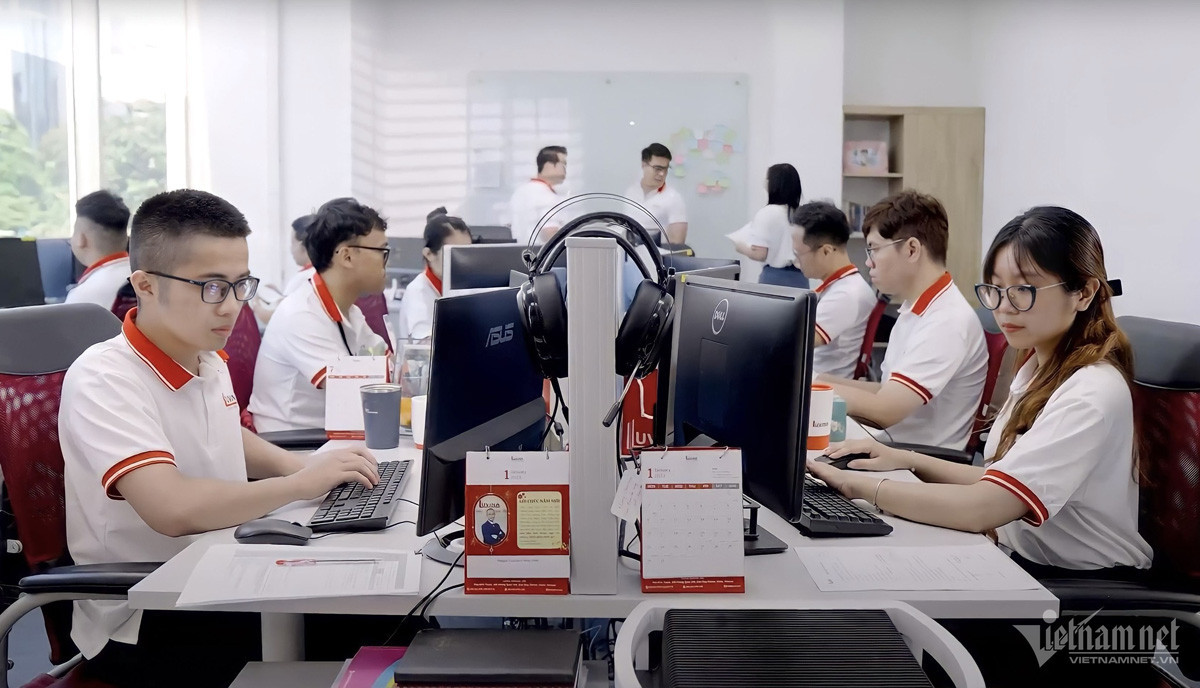A recent survey by the Vietnam Software and IT Services Association (VINASA) reveals a trend among Vietnamese IT companies in Japan, moving beyond outsourcing to take on higher-value projects such as research and solution design for their Japanese partners.
The findings were shared by VINASA Deputy Secretary-General An Ngoc Thao during the Japan ICT Day 2024 event, held on December 2 in Hanoi.
Vietnamese IT growth in Japan

IT cooperation between Vietnam and Japan is flourishing, with over 400 Vietnamese companies partnering with Japanese counterparts. Photo: T.P
The survey involved 20 Vietnamese IT companies operating in Japan, including 10 with over 1,000 engineers, five with 500–1,000 engineers, and five with 200–500 engineers.
Between 2020 and 2024, these companies saw their combined revenue double from $672 million to $1.345 billion, growing at an annual rate of 22–28%. Their workforce increased by nearly 8,000, reflecting a growth rate of 6–10%.
“The fact that revenue growth has far outpaced workforce growth highlights a significant increase in labor productivity,” said An Ngoc Thao.
The survey also highlighted two major shifts among Vietnamese IT firms in Japan. First, companies are advancing to higher-value project tiers, such as research and design, incorporating technologies like AI and blockchain. Second, they are packaging and providing proprietary products rather than merely offering services.
Emerging fields of cooperation
Japan ICT Day 2024 participants identified three key areas for collaboration: artificial intelligence (AI), modernizing legacy systems, and smart green manufacturing. These fields offer vast potential, not just in Japan but also for Japanese businesses operating in Vietnam.
According to Akira Watanabe, Vice Chairman of the Vietnam-Japan IT Cooperation Committee and Director of NTTe-MOI, IT cooperation between the two countries has been growing steadily, with over 400 Vietnamese firms now partnered with Japanese companies.
Vietnamese firms leverage their technical expertise, cost advantages, and cultural understanding to focus on digital transformation, talent development, and system modernization projects.
Prominent collaboration areas include manufacturing, automotive, financial insurance, cybersecurity, and semiconductor industries. However, Watanabe noted that companies must overcome challenges such as language barriers, workforce stability, and global competitiveness to advance further.
Japan's IT workforce challenges and Vietnam's potential
Junya Kawamoto, Chairman of the International Cooperation Committee at the Japan Information Industry Association (JISA), addressed Japan’s IT workforce shortage during the event. According to Japan’s Ministry of Economy, Trade, and Industry (METI), the country will face a shortfall of approximately 789,000 IT workers by 2030.
“Vietnam has emerged as an ideal partner with its young, tech-savvy workforce and strong government support,” Kawamoto remarked. Japanese businesses are optimistic about collaborating with Vietnam to develop talent, share expertise in advanced technologies, and explore joint business models.
Japan ICT Day 2024, running from December 2 to 3, featured three main activities: conferences, networking sessions, and company tours to Vietnamese firms.
The event attracted over 100 participants from more than 30 companies in both countries. Organizers hope it will further strengthen tech sector partnerships between Vietnam and Japan.
